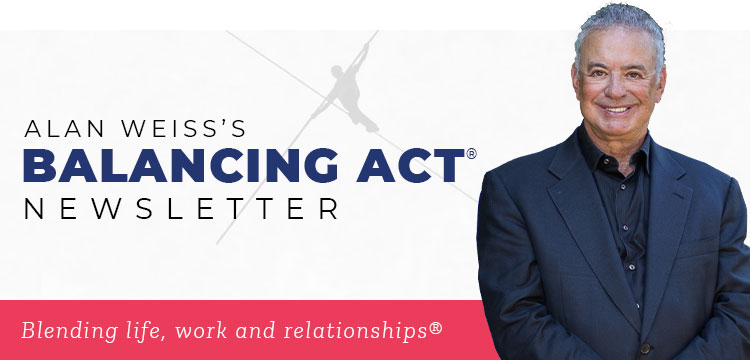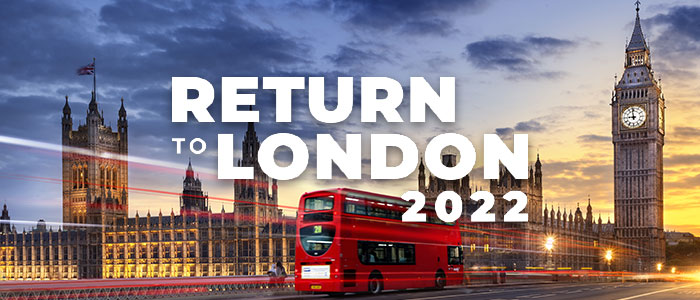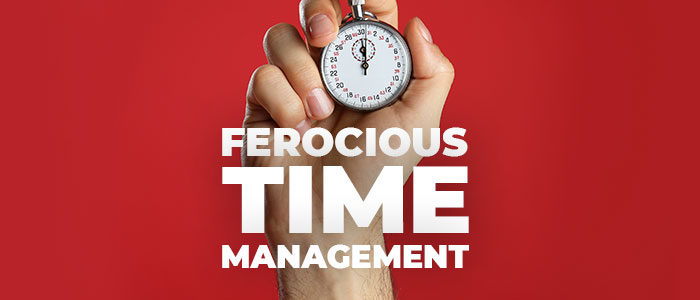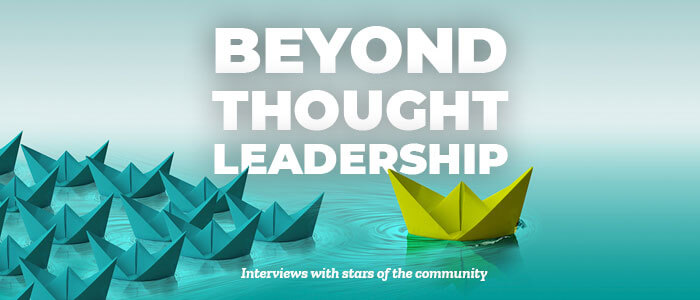 |
Email not displaying correctly? View in Browser |
 |
|
|
|||||
Balancing Act®: The Newsletter(No. 275, July 2022) |
|
Balancing Act® is our registered trademark. You are encouraged to share the contents with others with appropriate attribution. Please use the ® whenever the phrase “Balancing Act” is used in connection with this newsletter or our workshops. NOTE: To change addresses, or to unsubscribe, use THIS LINK Balancing Act® is in four sections based on famous quotations:
Follow me on Twitter. Daily I provide a pithy piece of advice for growth. Like my Facebook Page so you’ll never miss an upcoming experience or a new book launch. Connect with me on LinkedIn. There I share business insights and innovative ways to enhance your consulting practice. Watch my latest YouTube video and subscribe to my channel. You will discover hundreds of videos including, A Minute with Alan™ and The Writing on The Wall®. Daily I provide a pithy piece of advice for growth. Free consulting newsletter: The Million Dollar Consulting® Mindset Monthly, fast advice on consulting techniques with case studies. Listen to my free Podcast Series on Apple Podcasts or on ContrarianConsulting.com: Alan Weiss’s The Uncomfortable Truth.® And watch A Minute with Alan™ daily on all social media and my blog. |
 |
|
 |
|
In his 1933 Inaugural Address, in the teeth of the Great Depression, Franklin Roosevelt uttered his famous line, “We have nothing to fear but fear itself.” Abject fear is paralyzing. It’s why people (and animals) freeze even when they should know that staying where they are is calamitous and even fatal. The best way to deal with any kind of adversity is to stop being scared and grab control of those things you can. Bullies and terrorists want to create fear while using relatively few resources in order to gain the leverage of the “upper hand,” being able to act while others are afraid to. I think the police in Uvalde, Texas are brave people, but their local leader showed up without a police radio, wasn’t sure what he was facing, and acted in fear of choosing the wrong course of action. So he chose to wait, which turned out to be precisely the wrong course of action. I, and many of my contemporaries, have been through polio pre-vaccine, the Cuban Missile Crisis, Viet Nam, the inner cities burning, the assassinations of John and Bobby Kennedy and Martin Luther King, the worst of the Cold War, the great recession and the near collapse of the financial markets, and 9/11. Those who persevered the best in my view were those who weren’t defeated by being afraid, but who took control of what they could, kept informed, were parts of mutual-help groups, and maintained perspective. After all, our fathers were fighting prior to our birth on land, sea, and air to try to save the world from racist tyrants. No generation has it “easy,” but the way we respond to threat is a key to resiliency versus hopelessness. When Roosevelt died in 1945 after having been elected to four terms, millions lined the streets for his funeral procession and openly wept. That hasn’t happened with any presidential death since. That’s because Roosevelt acknowledged fear, but helped people to overcome it. Today, we have to stop being afraid of inconsequential things, like calling for referrals, or addressing a group, or writing an article, or confronting silly practices and statements. Ask yourself if the impediments to your movement and success are just vague fears that you’ve yet to face and overcome. If you can do that, you’ll be totally free. |
 |
|
 |
|
I was the vice president for North America when I worked for a firm in Princeton, and to celebrate a record year, I took the entire team to a dude ranch somewhere in Arizona. It was fabulous. One twilight, three of the cowboys gathered to escort several dozen of us on horses to a dinner under the stars. They mounted me on a horse named Lucky Charm and we rode, single file, with me following the cowboys and leading my team. The cowboys told me the boss has to ride first. My troops gave me hell about it and told me not to fall off. They asked if I knew where the gear shift was. We had a great bonfire and dinner—a chuckwagon was on site—and a lot of beer and whiskey. At the end, they told us to mount up and then told me that I was to lead everyone back because they had to clean up the site. “I don’t know my way back!” I said in the coal-mine blackness of the night, “and I’ve had a lot to drink!” They told me I was a far better horseman than I thought, and to start out to the right of a tree up ahead and I’d recognize the trail. There was more heat from the troops and I thought I might just kill the entire North American field force. But I moved well, did instinctively find my way, and with very subtle direction moved the horse in the right direction, a perfect team. It was like second nature. Apparently, I was born to ride. About 40 minutes later we were back on the ranch, all of my people had to admit I had done incredibly well in the dark finding the trail, and as everyone dismounted the cowboys caught up with me and the leader said, “It’s appropriate to tip us for the evening, and we reckon we’d be happy with a hundred dollars.” “That sounds steep,” I said, “but what the hell, it was great,” and I handed over the money. “What do you do,” I asked, “if someone doesn’t tip you?” “Well,” he said, “at breakfast the next morning we manage to make it known that Lucky Charm knows the way back to the ranch by himself.” |

|
|
|
|
|
|
|
|
|
|
|
 |

|
|
Alan Weiss’s Balancing Act® Newsletter is a registered trademark of Alan Weiss and Summit Consulting Group, Inc. You are subscribed as: _email_ |












